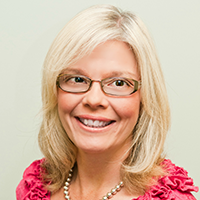Past Coverage of ACR 2015Past Coverage of ACR 2015 Return To RheumReports Home

A global initiative comprised of 27 rheumatologists and patient advocacy group leaders from 13 countries was formed under the name "RA NaRAtive." This team developed an online patient survey that was completed by 3,649 patients living with RA. Their self-reported level of disease ranged from 37% moderate-severe disease activity, 12% low disease activity, 4% remission, and 28% indicating they were under control. The median time since diagnosis was 7 years.
Of those surveyed, 50% had stopped participating in certain activities and 29% has discontinued work due to RA. Although 48% of participants indicated that more dialogue/discussion with their health care provider would help them manage their RA more successfully, 62% of patients felt uncomfortable raising their concerns and fears with their HCP.
Among the 76% of patients who were receiving medication for their RA, 38% were not taking it as prescribed. Adverse effects and inconvenience were cited as the most common reasons for non-adherence. Although 78% of those surveyed were satisfied with their treatment, 70% desired less medication and 56% desired more therapeutic choices.
When questioned about what aspects of treatment they most wanted to change, adverse effects, cost, availability of monotherapy and alternatives to injecting medication were the top choices.
Whereas HCPs consider changes in the number of tender and swollen joints, blood markers and radiographic changes as measures of success, the majority of patients defined treatment success as a reduction in pain and swelling, improvement in quality of life, controlling disease progression and being able to reduce their use of medication.
Poor communication skills of health professionals has long been identified as a barrier to optimal patient care. Twenty-eight years ago, in an attempt to improve this situation, health faculties at many Canadian universities began implementing communication courses for their students. I was aware of this initiative since I was part of the instructional team in the faculty of pharmacy at the University of Toronto. Workshops were also designed for practitioners who had graduated long ago as part of their CME.
Yet despite these efforts, this survey indicates that more than half of patients still don't talk to their HCP about their fears and concerns. The problem of non-adherence can in part be explained by this barrier, since open discussion could result in selection of treatment regimens that better meet a patient's unique needs.
Expanding access to team-based practice that involves multiple HCP touch points, and time for open discussion, may be one avenue to closing this communication gap within busy rheumatology practices.
Share This Report
About the Author

Carolyn Whiskin, BSc. Phm is currently the director of pharmacy programs for the Charlton Centre for Specialized Treatments in Hamilton, Ontario. She also practices pharmacy at Brant Arts Dispensary in Burlington, Ontario and is the pharmacist representative to the Ontario Rheumatology Association’s Model of Care committee.
View Full Bio





